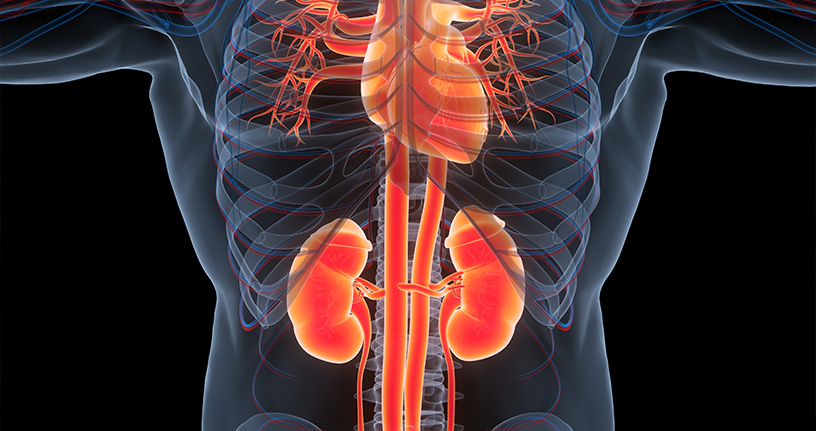Adrenal cancer is categorized under the class of medications known as neuroendocrine tumors. It occurs when cells in your adrenal glands change and grow out of control. Adrenal carcinoma can be tough to cure but is quite possible when the condition is detected early and treatment starts. Treatments could include surgery, radiation therapy, and chemotherapy.
Importance of early detection
It is tough to find cancer in the adrenal gland early, and they are often quite large by the time they are detected. Adrenal cancers are often found earlier in children than in adults because cancers in children are believed to secrete hormones that contribute to signs and symptoms. The type of cancer found early by accident in adults, such as when a CT scan of the abdomen is done for some health problems. The American Cancer Society suggests the early detection of several types of cancer. However, because adrenal cancers are rare, the guidelines do not recommend routine testing for this cancer in people without any symptoms. If you have been diagnosed with adrenal cancer, your healthcare professional is with you. It is important to take time and explore options. Also, weighing the benefits of each option against the possible risks and side effects is important, and an experienced healthcare team can help.
About Adrenal cancer
Adrenal carcinoma develops when cells in your adrenal glands change and grow, ultimately leading to the formation of a tumor. Adrenal gland thickening lung cancer An individual has two adrenal glands, one on top of each kidney. They produce certain hormones that send signals to many different organs to build a healthy body. You may develop an adrenal kidney tumor in one or both adrenal glands.
Types of adrenal cancer
Majorly there are three main types of adrenal cancer. Each begins in a different area of your adrenal gland.
-
- Adrenocortical carcinoma: Adrenal cortical carcinoma is a common type of adrenal cancer, also known as adrenocortical carcinoma. It develops in the outer layer of your adrenal gland. Your adrenal gland produces steroid hormones that help to control elements like blood pressure, metabolism, body shape, and hair growth. Adrenocortical cancer is often referred to as adrenal cortex cancer. Adrenocortical carcinoma symptoms include high blood pressure, pain in the abdomen, overgrowth of hair, acne, and voice deepening.
- Neuroblastoma: This type of adrenal cancer occurs in nerve cells and affects many different parts of your body. About one-third develops in the inner part of your adrenal gland, known as the medulla. The medulla produces chemicals like epinephrine and norepinephrine that help to control your sympathetic nervous system. This system helps regulate heart rate, sweating, and blood pressure. This type of adrenal cancer usually affects infants and children under the age of 10.
- Pheochromocytoma: This type of adrenal cancer develops in the center of your medulla, usually in the cells that cause adrenaline. Adrenaline is a chemical that helps regulate blood pressure and heart rate.
Symptoms of Adrenal cancer
Adrenal cortical carcinoma symptoms are different in each individual who is affected with adrenal cancer. Pain occurs if the tumor gets bigger or presses other nearby organs. Others may notice symptoms based on the extra hormones the tumor releases. General adrenal cancer symptoms of adrenal cancer include abdominal pain, back pain, muscle cramps, the feeling of fullness in your belly, headaches, and weakness.
The symptoms of hormone-specific adrenal cancer include hirsutism, diabetes, high blood pressure, unexplained weight loss, low potassium, fast heartbeat, panic attacks, anxiety, and low sex drive, enlarged breasts, enlarged penis/clitoris. In some people, the type of cancer does not cause any symptoms.
Management and treatment
Curing your adrenal gland malignancy is possible if it has not spread to other parts of your body. Surgical removal is a curative treatment of adrenal cancer. However, it is tough to cure your adrenal gland if it’s spread beyond it. Adrenal gland metastases are commonly reported in patients with lung cancer. Adrenal gland thickening lung cancer patients suffer. Aggressive treatment of adrenal carcinoma lung cancer leads to improved outcomes. Treatment slows down the growth of cancer in adrenal glands and lungs, hence the progression of the disease, and improves your quality of life.
How is adrenal carcinoma treated?
Adrenal gland cancer treatment usually involves surgery to remove all of the cancer cells. Other adrenal carcinoma treatment options are available to prevent the cancer from coming back, or if you can, consider surgery.
-
- Surgery
Surgery is considered to remove the entire adrenal cancer. So, to achieve this, the surgeon needs to remove the affected adrenal gland. If the team of health acne professionals identified the spread of cancer to nearby structures, including the liver, kidney, or other parts, all of those infected organs might also be removed during the surgery.
-
- Medications for risk reduction of recurrence
A medication that has been used for so many years to treat adrenal cancer of the advanced stage has shown promise in delaying the recurrence of the disease after surgery. Patients may be prescribed with a high risk of cancer recurrence. However, research related to the effectiveness of Mitotane is still going on.
-
- Radiation therapy
Radiation therapy uses powdered energy beams, including X-rays and protons, to destroy cancer cells. Doctors sometimes recommend radiation therapy after adrenal cancer surgery to destroy any cells that remain in the body. It is also effective in reducing pain and other cancer symptoms that have spread to other body parts, such as bone.
-
- Chemotherapy
Chemotherapy is also a cancer treatment that uses chemicals to destroy cancer cells. For cancer that can’t be removed with surgery or that reoccurs after initial treatments, chemotherapy may be considered to slow down the disease progression.
How to prevent adrenal cancer
There is no proven way to prevent these types of adrenal cancer. However, avoiding environmental risk factors like smoking may cause a significant reduction in the risk of your overall risk.




